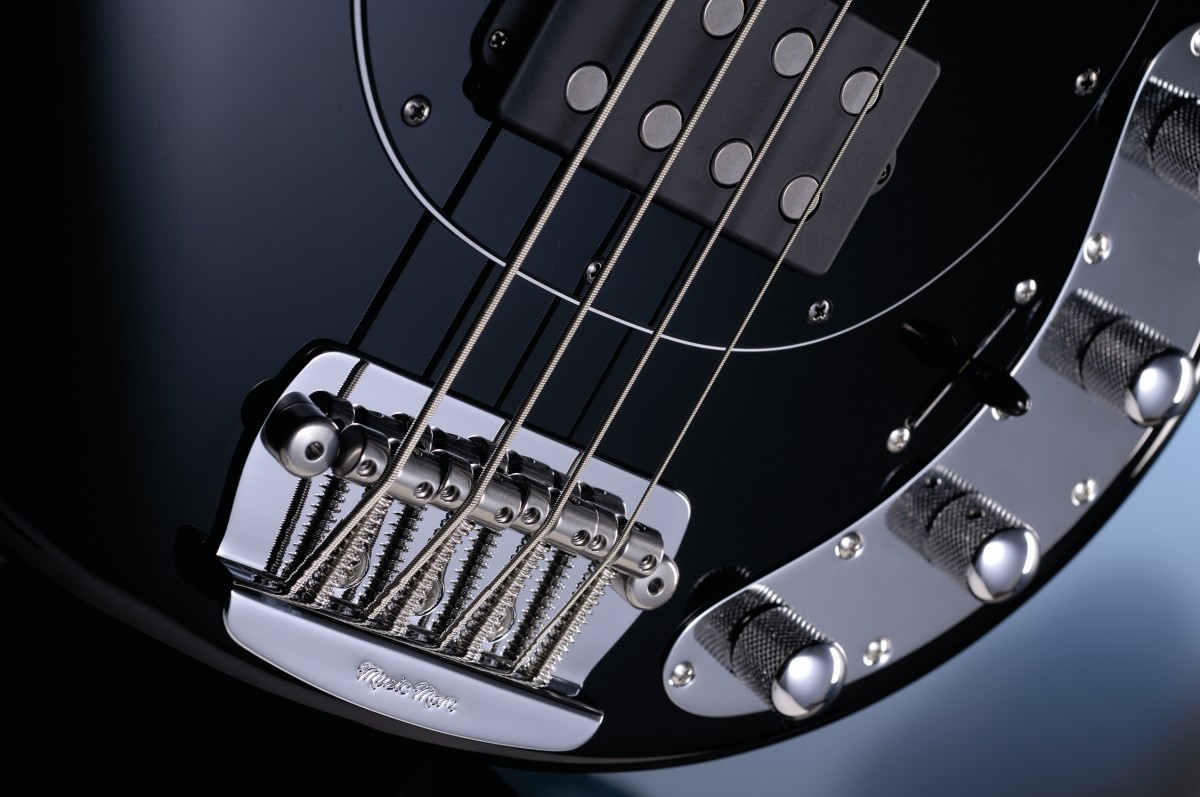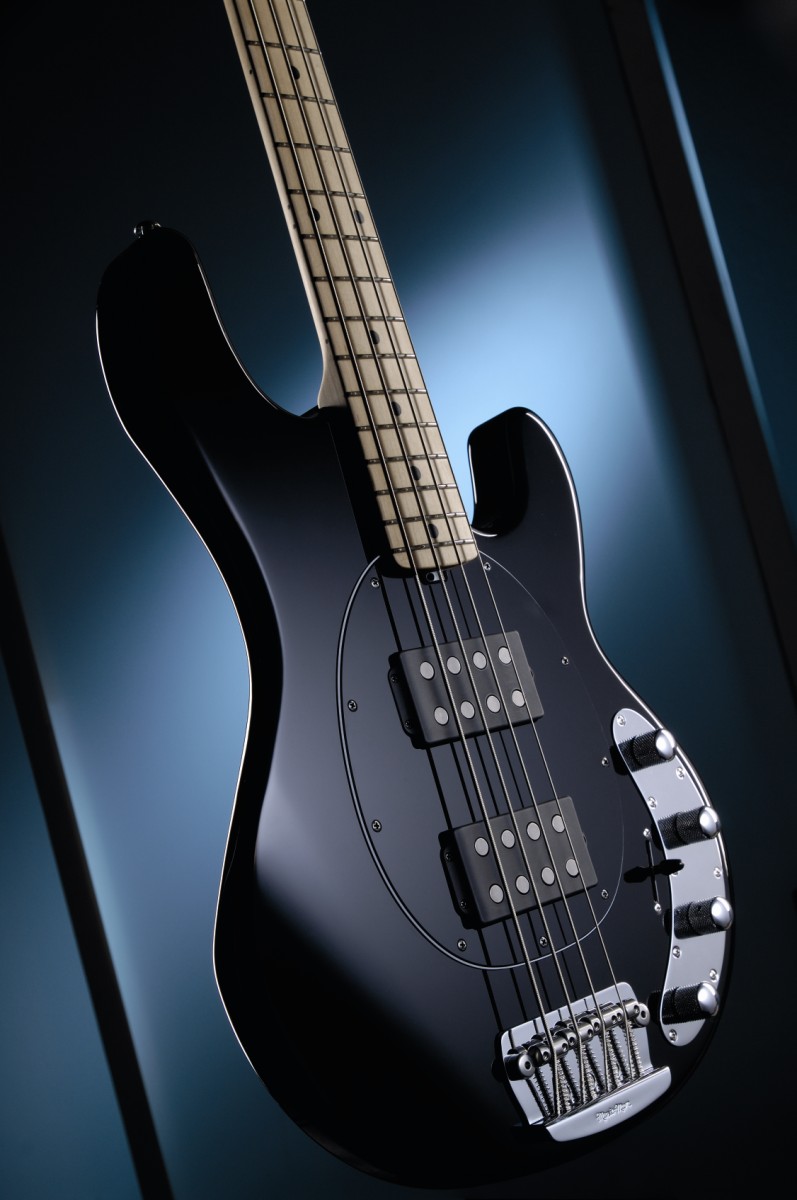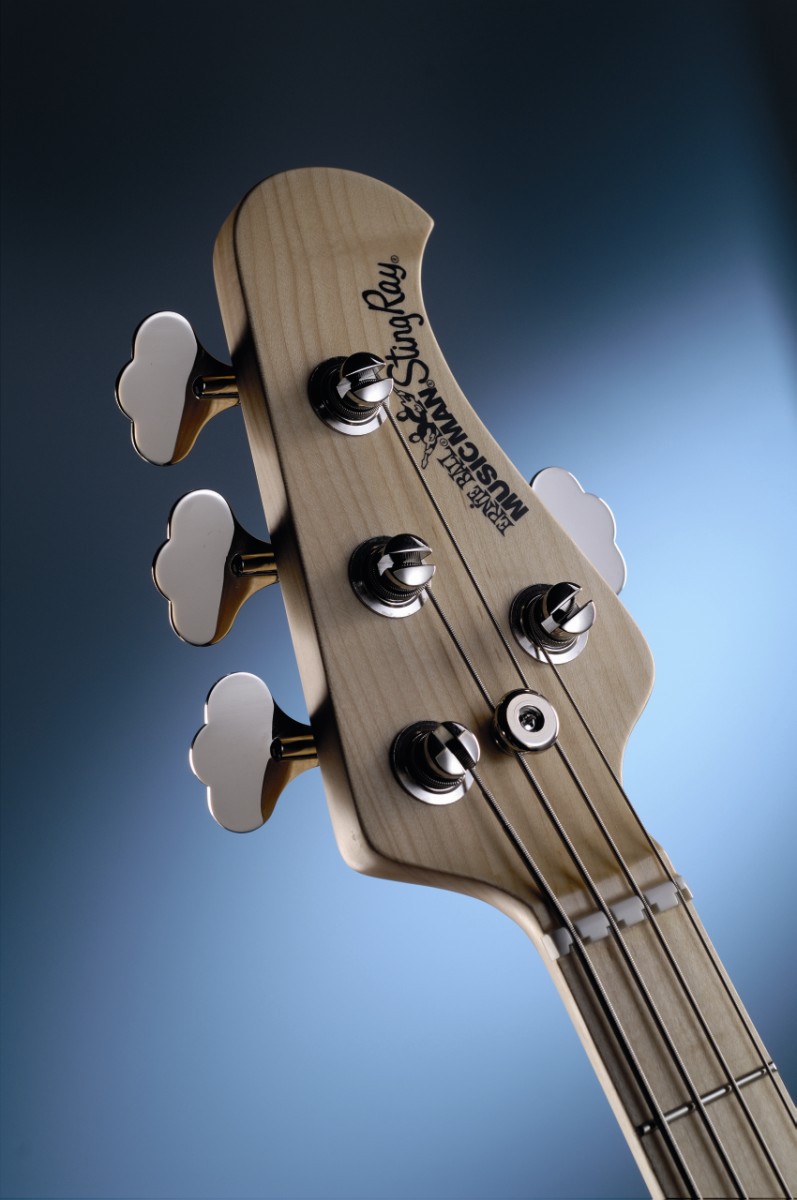MusicRadar Verdict
The StingRay HH a truly fantastic bass. Not only does it look truly stunning, but it produces an equally stunning variety of solid sounds to die for. A humbucker and single-coil combination is available at the same price should you prefer it. Of course, both models are also available as a five string. What more could you possibly want?
Pros
- +
Traditional StingRay looks Pickup switching options Great sounds
Cons
- -
It's really very hard to find fault with such a great all-rounder
MusicRadar's got your back



When a bass guitar is championed by the likes of Flea, Tony Levin and Pino Palladino you know it must be something special, and that is a fitting description of Music Man's mighty StingRay bass. The single-pickup original has certainly stood the test of time - thanks to its remarkable versatility - but this double humbucker version opens up the parameters even further.
Music Man's Bongo showed exactly what a twin humbucker bass could do, but for many it was a visual design step too far. Bassists are an adaptable bunch, but when it comes to the 'Ray, they may be reluctant to leave its tried and tested formula behind. So what exactly does the HH bring to the playing field?
The design
Visually the usual components are exactly as they should be. Oval scratchplate, chromed crescent moon control plate, heavy-duty bridge but now with added pickup and surface mounted selector switch. The bridge pickup is positioned exactly as on the regular StingRay and the additional unit sits fairly centrally between that and the end of the neck.
All the other major features stay pretty true to form; Schaller BM tuners with tapered string posts, the neat capstan wheel truss rod adjuster and the chrome-plated brass cover plate sitting over a graphite coated control cavity that keeps background noise to a minimum. However, while presentation is as you'd expect, the electronics are much more sophisticated.
In order to fully appreciate what's on offer it's perhaps best to think of the two humbuckers as four separate single-coil pickups running one-four from bridge to neck. So at the furthest extremes of the switch you either engage coils one and two (bridge humbucker) or three and four (neck humbucker) and in the centre position you activate all four coils (both pickups on).
Standard textbook stuff, of course, but it's the other two switch positions that give this bass a very interesting tonal twist. One activates coils two and three for a really big central pickup sound while the other offers coils one and four for a super-wide hollow sound. This in addition to a master volume, with bass, middle and treble active EQ means there's a lot of sonic potential here.
In use
With heavy-duty hardware, a secure six-bolt neck plate, a comfortably contoured body and a compensated nut for greater tuning accuracy, this bass is definitely built for battle. The ever-so-slightly wider neck takes a little getting used to, but as the general proportions remain within the optimum, the StingRay playing experience is hard to fault.
Although there's still a difference in sound between the Ernie Ball-made models and the original Leo Fender examples - those really early ones were notably bass heavy with a rounder sound - today's versions are far more versatile, having added presence and clarity that's ideally suited for this updated model.
It's impossible to find a bad sound here. Thankfully, the regular StingRay sound is retained but, of course, you get a whole lot more to play with. Using both pickups together produces a fat, thumping sound with a hollow edge that's hard to follow. Using the two extreme coils together unleashes a very cool, sumptuous hollow sound while the two middle coils tighten things up nicely.
Individual volume controls could possibly have improved the blending options slightly but we're not about to second-guess the experts on this point. This new breed of StingRay offers countless tonal variations and the ability to focus your own sound preferences with the highly effective three-band EQ. Altogether it's a highly impressive, professional instrument from head to toe.
MusicRadar is the number one website for music-makers of all kinds, be they guitarists, drummers, keyboard players, DJs or producers...
- GEAR: We help musicians find the best gear with top-ranking gear round-ups and high-quality, authoritative reviews by a wide team of highly experienced experts.
- TIPS: We also provide tuition, from bite-sized tips to advanced work-outs and guidance from recognised musicians and stars.
- STARS: We talk to musicians and stars about their creative processes, and the nuts and bolts of their gear and technique. We give fans an insight into the craft of music-making that no other music website can.
“A synthesizer that is both easy to use and fun to play whilst maintaining a decent degree of programming depth and flexibility”: PWM Mantis review
“I feel like that song had everything we needed to come back with”: Bring Me The Horizon’s Lee Malia on Shadow Moses, its riff and the secrets behind its tone, and why it was the right anthem at the right time
“I said, ‘Are we sure we can write a song about death?’”: The story of Mike + The Mechanics' classic No.1 The Living Years










